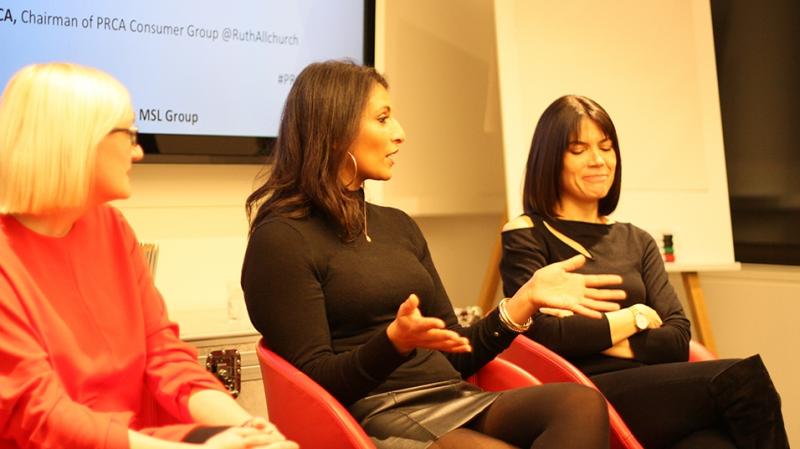
MSL recently hosted the PRCA's Consumer Group event on brand relevancy and credibility in PR.
Experts from Coca Cola, Fresh Planning, Golin, FleishmanHillard and MSL’s very own Kinda Jackson, Head of Digital Content, discussed where PR sits when brands compete to be the most authentic and meaningful.
Here are some of the things we learned:
Be emotionally intelligent
While our screens have become oversautrated with advertising and brand messages it’s no surprise that we’ve grown accustomed to tuning them out. Kinda Jackson shared the insight that we scroll through 300ft of content every day - the equivalent height of the Statue of Liberty - but more importantly, we choose what and who to consume. The days of the banner ad are gone and we instead give our attention to people who speak from a place of passion.
Sam Matthewson from Fresh Planning reasoned that in order to slice through the noise and regain relevancy, brands must tap into our most primal side: the human emotions that underpin rational decisions. It’s a matter of brands laddering down the pyramid of human needs, desires and instincts in order to understand how we function neurologically. Only from that foundation can a brilliant campaign be created. This isn’t a revelation but a stark reminder that brands need to get emotional or become obsolete.
Don’t be controversial, be unexpected
Like the uninvited guest at a party, brands have an awkward tendency to gatecrash events and causes with no direct connection to themselves. Like the recent Greggs campaign that placed a sausage roll at the center of a nativity scene or when Skittles gave away its rainbow to support Gay Pride, such a technique is risky and can often offend. At this year’s Paris Fashion Week, eyebrows were raised as Crocs hijacked the catwalk – a move that made many question its relevancy. However, as Lauren Winter from FleishmanHillard pointed out, the differentiating factor in this case is that the aim was not risk, controversy or tokenism but surprise and delight.
Not all brands need to be trusted
Gone are the days of brand loyalty, giving way to educated and cynical consumers. Whilst many brands are encouraging more personal relationships, is this always necessary or just another form of brand narcissism? Trust may be an essential component for many brands but, as Joan O'Connor from Coca Cola pointed out, they should first try to understand what their existence centers around. Golin's Eleanor Sullivan added that, despite Amazon’s history of tax evasion and scandal, it's still her favorite brand for its simplicity and relevancy. Every brand has been created for a reason and that shouldn’t be detracted from or post-rationalised.
Address everyone
Whilst every great campaign will have an arrow pointed precisely at its target demographic, we also need to consider who sits at the periphery of this circle. Kinda Jackson pointed out that for every prospect who shares the same values as a brand, there'll be a mass of people just outside of this description who will view the campaign regardless and may find issues with it. She explained that we need to better understand the shareability and transparency of social channels and keep cultural and social nuances front of mind. The first question is: what does the world look like from the customer's perspective? Then, what does the world look like from everyone else's perspective? If the public can spot an inconsistency between brand claims and brand reality, there'll be a backlash – and often with the non-target demographic shouting the loudest.
Thanks to the PRCA for a fantastic evening!
